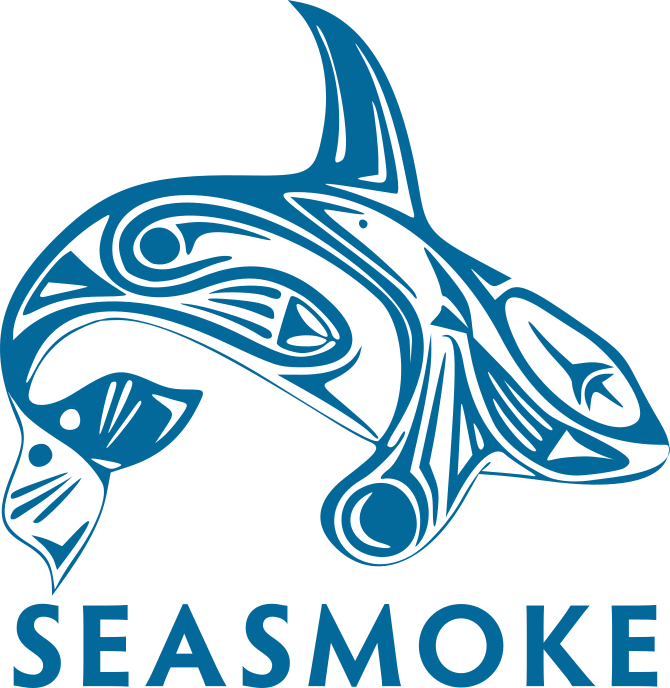Planet Earth III - Conger the Humpback makes his debut!
Humpback whale trap feeding.
Today is the big day for Conger the humpback whale and his Canadian debut on BBC’s Planet Earth III, episode 7, “Humans”. One of our most well-known local humpback whales is the star of a segment of the newest Planet Earth documentary that was filmed right here in Johnstone Straight!
I remember back in 2021 Nate and I were out watching humpbacks on our personal boat and we noticed the Marine Education and Research Society’s (MERS) boat, Fluke, with a lot of VERY fancy and expensive camera equipment attached to it. The project was totally hush-hush at that point but we were pretty confident it had something to do with the BBC. They were obviously filming the humpbacks, who on that day were feeding in the strong tidal currents of Weynton Pass, a place that you’ll be very familiar with if you’ve ever been on tour with us! Weynton Pass is right across from Telegraph Cove and is often FULL of wildlife! Because it funnels water between Johnstone Straight and Queen Charlotte Straight, it concentrates food and the animals take full advantage, with several humpbacks often feeding. It’s also a haul-out location for northern sea lions, and a common transit route for northern resident and Biggs orcas, home of harbour seals and Dalls porpoise, a nesting area for bald eagles, and occasionally a playground for Pacific white-sided dolphins. It was pretty exciting to hear last year that it was indeed BBC and they were filming for the upcoming Planet Earth III!
Jackie Hildering, MERS Humpback Researcher and Director of Education and Communications stated, “We could never have imagined our research boat carrying the extraordinary wealth and volume of camera gear and working with famous nature documentarians, let alone that Sir David Attenborough himself would say the name of one of the Humpbacks we nicknamed and that we would spend weeks looking for whale poo.”
The team from BBC, including Bertie Gregory (“Epic Adventures with Bertie Gregory” and “Animals Up Close”) and BC’s own Tavish Campbell, were primarily here to film trap-feeding and to talk about the impacts that large whales have on ecosystems. Trap-feeding is a novel feeding strategy that has only been documented in humpback whales in the waters right here on northeastern Vancouver Island. It was first scientifically documented by the researchers at MERS in 2011 and Conger was the very first individual seen doing it. Since then, at least 32 individual humpbacks have learned this behaviour, proving that humpbacks have the capacity for social learning. In the fall of 2023, Nate and I even saw the first known evidence of a calf learning how to trap-feed from their mother! Guardian, another well-known humpback here, had her first calf in 2023. We were fortunate enough to witness the calf’s clumsy attempts at trap-feeding as Guardian used the technique to catch small fish just adjacent to Hanson Island.
To learn more about trap feeding and some of the research being done, check out this article on the MERS website.
It was certainly exciting and a little bit emotional hearing Sir David Attenborough, the voice of nature himself, talk about the incredible place we call home and the individual whales we know and love. If you would like the opportunity to see this unique feeding behaviour not seen anywhere else on the planet, join us for a tour any time during our season. During the past two years, we have seen humpback whales on 100% of our tours!
Planet Earth III can be streamed on BBC Earth.
Compilation of video footage of trap-feeding humpback whales.



